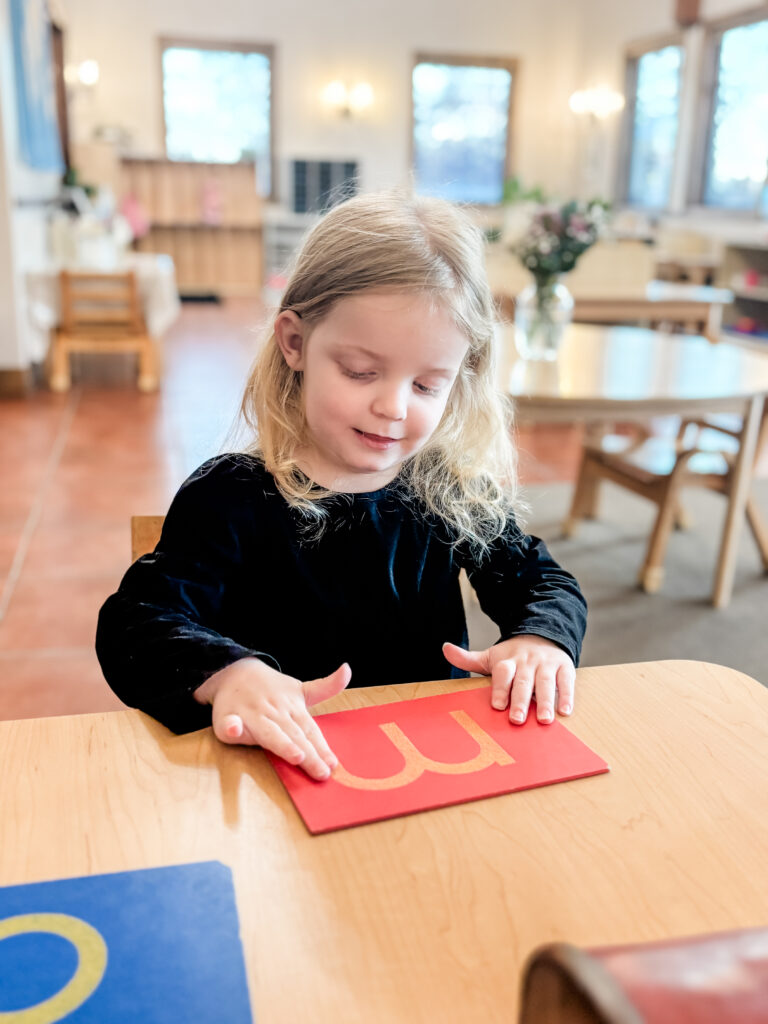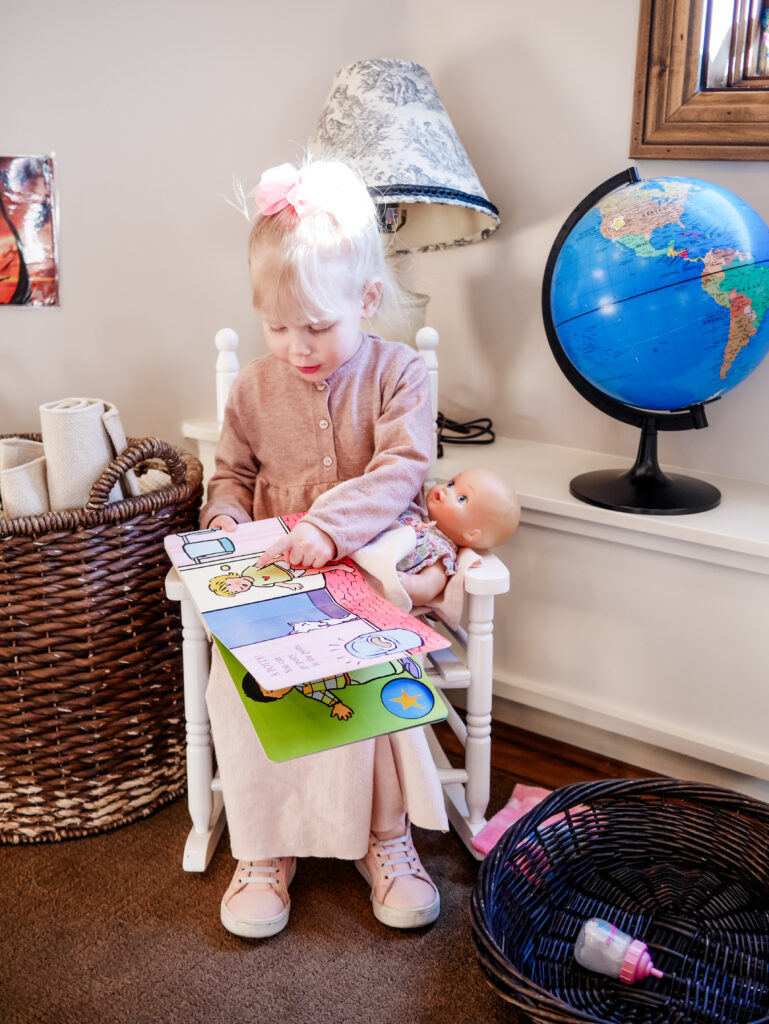Early Childhood – Empowering children to reach their full potential
Our curriculum extends through the third grade level, providing opportunities for advanced learning in math, reading, language, science, geography, and cultural studies for those who are ready (Ages 3-6).
A beautiful aspect of this age group is the natural mentorship between older and younger children. Older children often guide their younger peers, looking out for them like family, while the younger children observe and aspire to accomplish the same tasks. This fosters a sense of community and collaboration rather than competition. You’ll often see children working side by side—one just beginning to connect an object with its beginning sound, while the other quietly writes a paragraph about something new they’ve learned.
Here is a typical AM daily schedule:
8:30-9:00 Recess
9:00-9:30 Circle Time
9:30-11:00 Work Time
11:00-11:15 Circle Time
11:15-11:25 Recess
11:30 Pick Up
Here is a typical PM daily schedule:
12:15-12:45 Recess
12:45-1:15 Circle Time
1:15-2:45 Work Time
2:45-3:00 Circle Time
3:00-3:10 Recess
3:15 Pick Up

Toddlers – Fostering Independence while growing self esteem
In the toddler classroom, we maintain small class sizes and a 1:5 teacher/child ratio to ensure a safe, intimate environment for our students who are 2 turning 3. The emphasis is on creating a warm, loving atmosphere where children can comfortably adapt to new social interactions with both peers and adults. Child-sized furniture and accessible Montessori materials empower children to choose their own work, fostering confidence and independence. The classroom also includes music, dancing, finger plays, and various art experiences.
Practical life activities are a favorite at this age. Toddlers are eager to practice tasks that promote independence, such as putting items in containers, wiping tables, pouring from one pitcher to another, and transferring objects with tongs. These activities support the development of fine motor skills and self-reliance, while encouraging a sense of accomplishment.
At this stage, children begin to explore the basics of language arts through verbal games that promote phonemic awareness—helping them understand that words are made up of sounds. Similarly, early math concepts such as recognizing quantities and their corresponding numerical symbols are introduced in playful, engaging ways, often through music and movement.
Here is their typical daily schedule:
8:30-9:30 Work Time
9:30-10:00 Recess
10:00-10:15 Snack
10:15-10:30 Circle Time
10:30-10:55 Work Time
10:55-11:15 Recess
11:15-11:30 Circle Time
11:30 Pick Up

Toilet Training
At Montessori Canyon Academy, toilet training is viewed as a natural developmental milestone, supported by patience, respect, and the encouragement of independence. Children are guided to develop an awareness of their own bodies and learn the skills necessary to use the toilet when they are ready. The process begins with providing child-sized toilets, empowering children to take ownership of their personal care. Teachers observe and offer gentle guidance, creating an environment where children approach toilet training with confidence and a sense of accomplishment. By respecting each child’s readiness and pace, this method fosters autonomy and builds responsibility for self-care.
There are many preparatory steps that can be taken even before transitioning out of diapers. As early as age one, children can start learning how to pull their own pants up and down during dressing and diaper changes. You can also invite your child to watch you or older siblings use the bathroom, explaining in simple, precise language what is happening. Allowing them to help with tasks like shutting the toilet seat or flushing with both hands also helps build their independence. By introducing these small tasks early, children can gradually develop the skills needed for full toilet training when the time comes.
Toilet training has become increasingly delayed in recent years, as more absorbent diapers have led children to rely on them longer. At Montessori Canyon Academy, we recommend using thicker training underwear instead of pull-ups, as the latter can confuse the child and slow the process. While it’s fine for children to wear diapers for naps or bedtime, we suggest skipping the pull-ups altogether. Additionally, we avoid using the word “accidents” in the toilet training process. Just as we wouldn’t criticize a child for falling while learning to walk, we aim to use positive, encouraging language when a child doesn’t make it to the toilet. We’re here to support and guide you through your child’s toilet training journey—please don’t hesitate to reach out if you need assistance.
